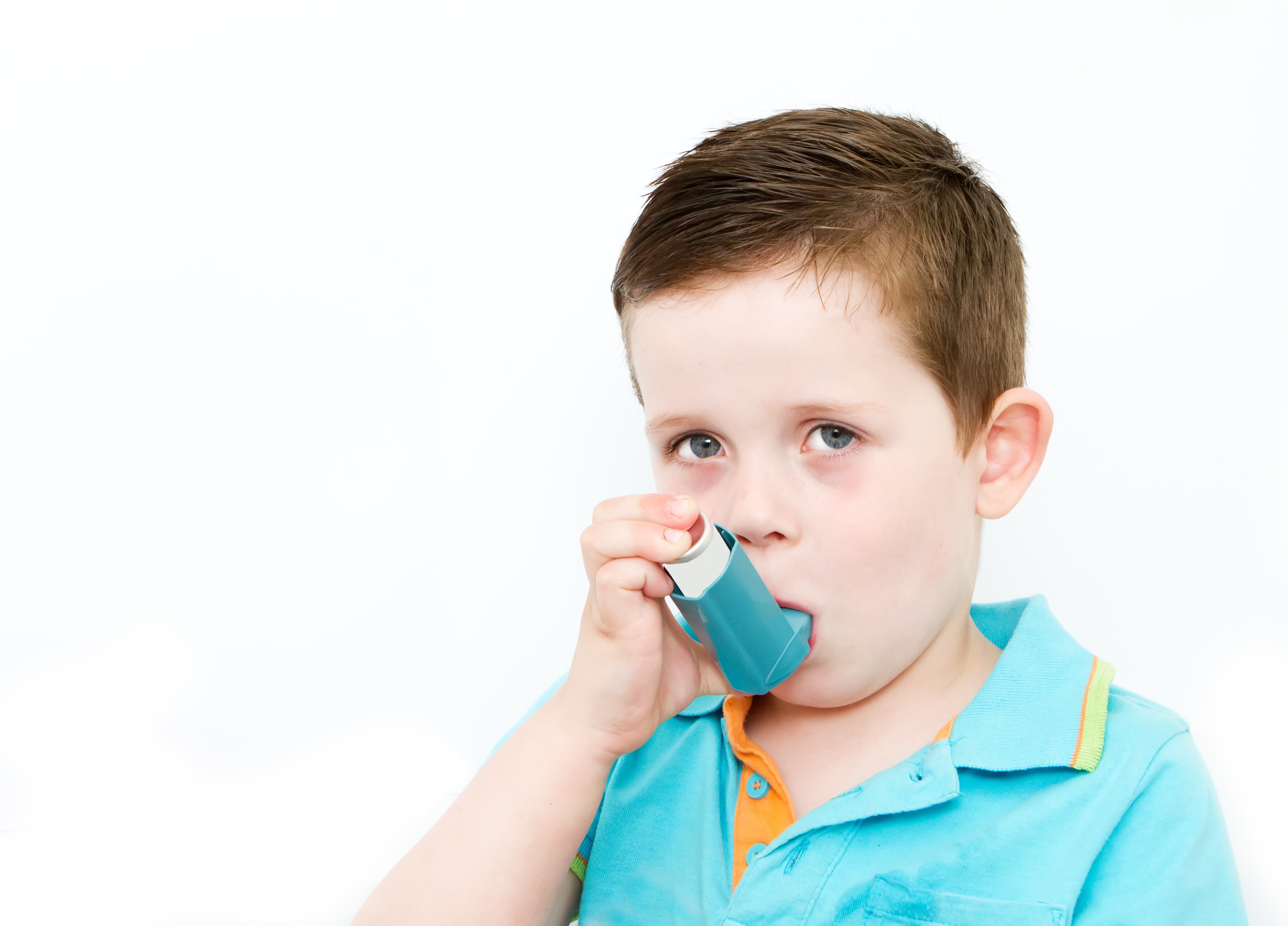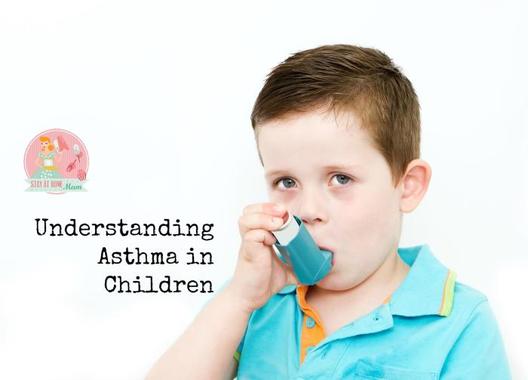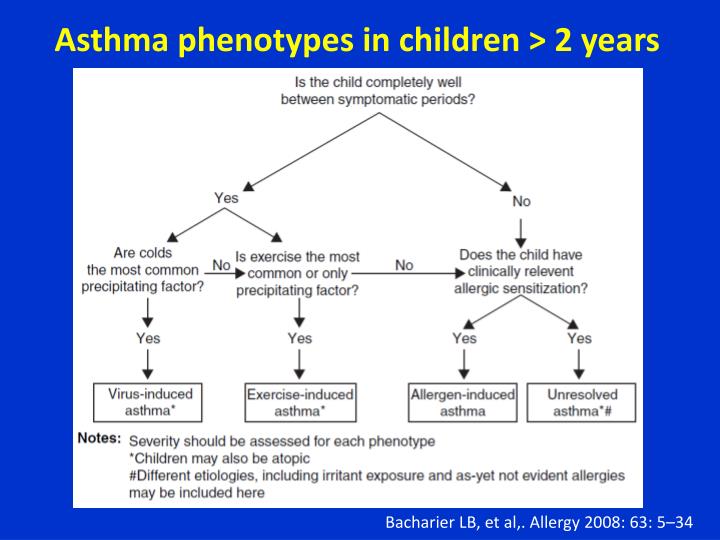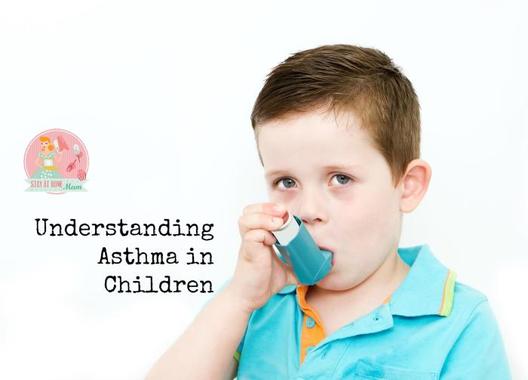Asthma In Children

Contents:
- Diagnosing Asthma In Babies
- Symptoms Of Asthma In Children
- Cause For Asthma In Children
- The Treatment Of Asthma In Babies
- First Aid
Many false beliefs are connected with such a widely spread disease as asthma. One of them is a false supposition that kids that have asthma can’t do sports or engage in other activities that require intensive physical loads. If it were true many sport stars wouldn’t have achieved the success that has made them world-wide known. Among such like stars there is footballer David Beckham, track and field athlete Paula Radcliffe, Olympic champion in swimming Rebecca Adlington and many other. All these sport stars manage to overcome asthma and defeat their competitors. Actually, doing sports as well as physical activity contribute to the strengthening of the lungs thus bringing their functioning back to normal.
In case of adults, asthma is considered to be a chronic disease even though it’s possible to get rid of it in childhood. Asthma in babies can be successfully cured thus giving him or her a chance for an adequate development in future.
Diagnosing Asthma In Babies

Asthma affects bronchial tubes and respiratory tracts. A normal process of breathing means that air gets in lungs and then it is pushed out. However, in case of children who suffer from asthma, the process of breathing goes not so easily since respiratory tracts swell and the muscles around the respiratory tracts contract. As a result of it, the ingress of air into the lungs is more difficult. Since there is the inflammation of the respiratory tracts, a thick mucous appears. It clogs up the respiratory tracts and a person feels lack of air – it becomes harder to breathe in and out. Besides, asthma is accompanied by a constant cough and a whistling breath.
Detecting asthma in babies is quite a hard task since babies can’t say exactly what they feel and explain why there is a slight indisposition. Apart from it, since a baby’s lungs are smaller, even little obstacles can cause the contraction of the respiratory tracts and make the process of breathing more difficult. Also, the symptoms of asthma may be the same as those of other widely spread diseases. Very often, the symptoms of asthma can be mixed up with the symptoms of a virus infection, pneumonia, gastroesophageal reflux disease or sinusitis. The guarantee for a successful diagnostics of asthma in babies is right interpretation and understanding of the disease.
Symptoms Of Asthma In Children
The symptoms of asthma may occur in very small babies, in babies that are younger than 1 year old. The intensity of the symptoms varies according to situation. The symptoms may occur in particular cases or exist constantly. The most obvious symptoms of asthma in babies are considered to be a sharp chest oscillation while breathing in and out, cough, heavy or whistling breathing.
The list of asthma’s mostly spread symptoms includes:
- fast wavy breathing;
- whistling breathing;
- sharp oscillation of chest while breathing in and out;
- exposed ribs;
- pale or blue lips, nails and face (because of a lack of oxygen);
- feeling weak and tired;
- the change of food preferences, loss of appetite;
- the change of the cries’ sounds (the cries sound softer than usual);
- no reaction on familiar faces;
- apathy, no interest in favourite games.
The peak for the occurrence of asthma’s symptoms is considered to be nighttime. It is exactly at night and in the early evening that the symptoms of the disease become especially intensive. There are several reasons for the symptoms becoming more intensive:
- The respiratory tracts become more sensitive at night.
- During nighttime the lungs do not contract that much – it is connected with aa day’s rhythm of an organism.
- At night an organism produces particular substances that change the functioning of the lungs
the body temperature decreases at night and respiratory tracts cool down.
Cause For Asthma In Children

Irrespective of a patient’s age, doctors are still unable to say the exact reason for the occurrence of asthma. The experts suppose that a combination of various factors may be the reason for the development of disease. The symptoms of the diseases that refer to the system of respiratory organs usually depend on what air we breathe in and not on what we eat. At present, scientists have managed to define a set of factors on which the occurrence of asthma depends this or that way:
- Allergies/provocative agents: breathing in allergens, very often, becomes the main reason for asthma in babies. Anything can act as a provocative agent of an allergic reaction – smoke, cold air, perfume, dust, plant pollen, household chemistry.
- Genetics: the fact that asthma is connected with genetics is also proved by scientists. However, the gen or the genes that influence the inheritance of asthma haven’t still been defined. According to statistics, in the USA 5% of small children ill with asthma inherited it from their relatives.
- The development of a kid: the immune system of a newborn is very fragile and sensitive during the first months of a baby’s life. The underdevelopment of respiratory organs, incorrect development and growth of the lungs, underdevelopment of the lungs – all these may be a reason for the occurrence of asthma. All these factors make a baby more prone to various respiratory infections. It may be bronchitis, sinusitis or a simple cold. All these diseases increase the risk of asthma occurrence in babies.
Other Factors That Affect The Occurrence Of Asthma In Babies
- It is considered that babies who are born during the fall are more prone to having asthma since the temperature of the air is low.
- Representatives of Spanish and Afro-American groups are more prone to the disease.
- The risk to have asthma is increased greatly in case of babies if a mother is smoking during pregnancy.
The Treatment Of Asthma In Babies

After the disease is diagnosed, the plan of treatment is defined in accordance with the frequency of the symptoms’ occurrence and how severe they are. As a rule, the process of treating asthma in case of babies has 2 stages. On the first stage the provocative agents of the disease are determined so that it is possible to avoid them in future. The second stage is taking the prescribed drugs.
Asthma may either be treated constantly or it may only be required when asthma attacks occur. The prescribed drugs may either be liquid for peroral administration or there may be sprays that are to be inhaled. when you begin treating the disease, it is necessary to strictly follow doctor’s recommendations so that the treatment is as effective as possible.
50% of babies will get rid of asthma as time goes by. In the majority of cases, asthma attacks disappear by the time a baby reaches school age. In case of some children, however, more time is required and the disease disappears only by the time of puberal growth stage. Still, it doesn’t mean that it’s not required to treat asthma in babies and it will simply disappear by itself. If there is no treatment provided, the lungs can be seriously damaged. It is necessary to keep a child away from certain kinds of physical activity that may provoke an asthma attack.
First Aid
The peak of a bronchial asthma attack is, in the majority of cases, cough. There can also occur urticaria and running nose. The breathing of a baby is uneven, it is accompanied by a whistle and wheeze. The inspiration becomes shorter than usual and it’s hard to breathe out. A patient starts to “catch” air with his or her mouth. Skin integument may become pale and lips, very often, become bluish.
If these symptoms occur, the first thing you should do is to make your kid sit down on a stool, then, you should tilt him or her forward so that the elbows rest on knees. In order to provide an inflow of air it is recommended to open a window (however, it shouldn’t become too cold in the room). Then, according to the instruction it is necessary to use inhaler with the drug that take the bronchial spasm down (this is a drug of beta-2 agonists of short effect group). You may also make use of distracting therapy and make hot baths for feet and hands.
During the time of an asthma attack in your kid, it’s important that you stay calm and try to calm down your kid as well. For example, you may give him or her favourite toy or read aloud. Your kid shouldn’t become scared much since panic and fear can make the attack significantly worse. If you have done all you could and the attack is still there, it is necessary to call ambulance.
Video: Signs of Asthma in Infants and Children
Knowing the symptoms of asthma would be good for every parent to know. That way they can look for these signs, and then they will be able to properly take care of the problem. If they don’t know the signs, they could end up really causing damage to the child by not getting the problem taken care of!